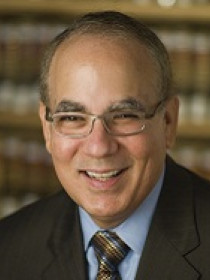
Peter M. Shane
Connect with Peter
About Peter
Shane's research focuses on U.S. constitutional and administrative law, with particular interest in the presidency and separation of powers. Writings include Madison's Nightmare: How Executive Power Threatens American Democracy (University of Chicago 2009) and Democracy's Chief Executive: Interpreting the Constitution and Defining the Future of the Presidency (forthcoming 2022, University of California).
Contributions
Why America Needs to Find New Ways to Support Local Journalism
Why the Ryan Budget is a Bad Deal for Ohio
No Jargon Podcast
In the News
Publications
Argues that the importance and obscurity of the federal government’s current policy making regarding cyber security should motivate a concentrated effort to engage the general public more directly in making the relevant tradeoffs. Recommends a national commission on cyber security, and lays out a plan for such a commission to initiate inclusive public deliberations on critical policy issues entailed in securing U.S. cyber systems.
Faults the Supreme Court for premising the Bush v. Gore decision on an unexamined assertion that the U.S. Constitution offers no protection for the individual right to vote in presidential elections. Argues that the rights of voters whose choices went altogether unrecognized in Florida should have been regarded as posing a more important problem than divergences in the inter-county disparities in vote counting procedures per se.